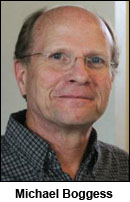OPINION
Two-tier faculty system harms higher education in Washington

 By KAREN STRICKLAND
By KAREN STRICKLAND
and MICHAEL BOGGESS
(Feb. 24, 2014) — If you or someone you know has taken a class at one of Washington’s community and technical colleges, there is a 50-50 chance that the instructor was a part-time faculty member.
For decades, higher education institutions across the country have increasingly hired part-time, adjunct or contingent faculty to teach, primarily because of shrinking state funding. In our state, two-thirds of the faculty workforce are contingent — teachers who aren’t in line for permanent tenure and frequently only working part-time at a college. It’s easy to blame the union representing faculty, but study after study and story after story prove that the system itself is broken.
A report released Jan. 24 by the U.S. House Committee on Education and the Workforce, called “The Just-In-Time Professor,” shares the findings of an e-forum the committee’s Democrats conducted to collect information about adjunct experiences. The report affirms there is an academic staffing crisis in higher education that’s built on a cheap source of labor. According to the findings about the faculty, “their story is another example of the shrinking middle class and another data point in the widening gap between rich and poor.”
“These people played by the rules and found employment in a highly skilled, in-demand field, but are being put under extreme stress — with some even living in or on the edge of poverty,” said senior committee member U.S. Rep. George Miller (D-Calif.)
Unfortunately, Senate Bill 5844 (sponsored by Sens. Tim Sheldon and Pam Roach) would perpetuate the inequity at an annual cost of $600,000. The bill may be dead for this year but similar measures have been introduced before and can be expected in the future. Proposals like this would exacerbate the two-tier faculty system by forming separate unions for part-time and full-time faculty.
 The American Federation of Teachers (AFT) Washington is one of two legally recognized labor organizations which represent more than 10,000 faculty in our community and technical colleges. For years we have worked hard through collective bargaining and legislation to improve the working conditions of part-time faculty. This includes fighting for equal pay for equal work, professional development, sick leave benefits, priority hiring, eligibility for unemployment insurance and rights to classes before full-time faculty take on extras. Contingent faculty are represented on our boards and committees and have a voice.
The American Federation of Teachers (AFT) Washington is one of two legally recognized labor organizations which represent more than 10,000 faculty in our community and technical colleges. For years we have worked hard through collective bargaining and legislation to improve the working conditions of part-time faculty. This includes fighting for equal pay for equal work, professional development, sick leave benefits, priority hiring, eligibility for unemployment insurance and rights to classes before full-time faculty take on extras. Contingent faculty are represented on our boards and committees and have a voice.
Recent contracts in our locals are showing improvement for contingent faculty. At Shoreline and Seattle community colleges, for example, many part-time faculty are guaranteed classes before full-time are allowed to work extra classes, and their union contracts ensure that they are interviewed for full-time positions in their departments. When the State Legislature allocated a small pot of money last year to restore the budget cuts, the faculty unions made sure that part-time faculty got an equal or greater share of the money as full-time.
We continue to address these issues. Our members support legislation such as HB 1348, which would allow faculty and college administration to bargain the use of discretionary local college funds (tuition, parking fees, international programs) for salary steps for part- and full-time faculty. Their step increases are currently funded by the State Legislature but, because of the economy and disinvestment in higher education, an overwhelming majority have not been implemented. The buck stops with the State Legislature and college boards of trustees, and it’s time to reward contingent faculty for their hard work.
College accreditation recommendations increasingly call for improved working conditions for contingent faculty, and these recommendations set the stage for having better leverage at the bargaining table.
SB 5844 is not the answer. Its approach is a flawed one that would undermine the collective power of faculty, leaving contingent faculty with the monumental task of organizing, forming a new bargaining unit, and competing for new contracts. It is a divide-and-conquer approach that perpetuates the two-tier system that was set up by college administrations long before unions began representing faculty.
Karen Strickland, president of AFT Washington and Vice President of the Washington State Labor Council, AFL-CIO, taught in the Social and Human Services Program at Seattle Central Community College. Michael Boggess is a part-time instructor at Pierce College, has taught English Composition as an adjunct since 1999, and is the chair of AFT Washington’s Contingent Faculty Issues Committee. This column was originally posted at Crosscut.com and is crossposted here with the authors’ permission.





